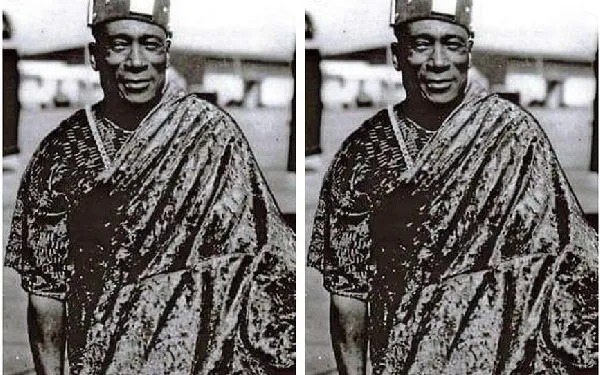Nii Kwabena Bonnie III, born in 1890, was a traditional leader of Osu Alata Mantse and Oyokohene of Techiman of the then Gold Coast. He was also a successful businessman.
In 1948, he led a nationwide boycott of all European goods sold in the Gold Coast at exorbitant prices, leading to high cost of living among the local people.
He formed the Anti-Inflation Campaign Committee in Accra in 1947 in response to the inflated retail prices on goods and rallied other traditional leaders across the Gold Coast to lead the boycott in their respective territories.
In a letter to the United Africa Company (UAC), a subsidiary of the Anglo-Dutch multinational Unilever, Nii Bonnie issued an ultimatum to the European firms to reduce their prices by January 24, 1948, cautioning that the local people would strike if they failed to do so.
The European firms ignored the ultimatum and refused to reduce their prices. As was the plan, the boycott began on 26 January 1948. The products boycotted by the Ghanaians included cotton prints, tinned meat, and flour biscuits.
It yielded fruit. On February 11, 1948, Nii Bonnie and other leaders attended a meeting with the colonial leaders and representatives of the merchants and they agreed to reduce the 75 percent profit margin on imported textiles to 50 percent.
The campaign to boycott European goods led to the 1948 riots and set the tone for the 1949-1951 campaign for independence.
According to reports, the colonial administration set up a commission to investigate what led to the 1948 riots and recommended that the Gold Coasters should be allowed to write their own constitution.
It was based on the report that the Gold Coast have the 1950 Constitution on which in 1951 had its very first general election.
Nii Kwabena Bonnie was a member of the Legislative Assembly elected in 1951.
The political history and the journey towards independence would be incomplete without the recognition of Nii Bonnie as the initiator of the mass action for self-governance.
The famous 1948 boycott of imported goods championed by Nii Bonnie and the subsequent anti-colonial campaigns lit the torch of nationalism among the people and sparked the desire for self-governance.


